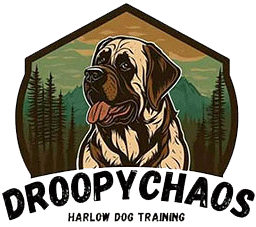Hand Feeding, Food Drive & Why Food Is a Powerful Resource
Food is one of the most powerful tools we have when it comes to building a relationship with our dogs — yet it’s often the most underused and misunderstood.
Hand feeding isn’t about withholding food or making your dog “work for everything.” It’s about using food intentionally to build communication, engagement, and trust.
When your dog eats from your hand, you become relevant. You become the source of good things. That simple shift can change everything.
Food as a Resource
(Not Just a Meal)
Dogs are natural problem-solvers. When food only appears in a bowl on the floor, it has very little meaning beyond filling a need. When food comes through you, it becomes information.
Hand feeding allows you to:
-
Build focus and engagement
-
Reward calm behaviour and good choices
-
Teach your dog what to do, not just what not to do
-
Create clear communication without pressure
This is especially powerful for dogs that struggle with reactivity, over-arousal, or disengagement.
Supporting Digestion & Regulation
From a physical perspective, hand feeding can also support your dog’s digestive system.
Instead of consuming a large amount of food all at once, or grazing throughout the day, food is given in small, controlled amounts. This can:
-
Reduce digestive overload
-
Support better nutrient absorption
-
Prevent constant digestion from grazing
-
Encourage natural feeding rhythms
Having clear feeding times allows your dog’s body to rest between meals, rather than digesting for the majority of the day.
Setting Your Dog Up for Success
Hand feeding creates built-in training opportunities without long or overwhelming sessions.
With good timing, you can easily work on:
-
Engagement
-
Calmness
-
Loose lead skills
-
Threshold work
-
Neutrality around distractions
Short, daily sessions are far more effective than occasional long ones. A few minutes here and there, using your dog’s normal food, adds up quickly.
A Better Relationship, Built Daily
At its core, hand feeding is about connection.
It encourages your dog to check in with you, trust you, and look to you for guidance. Over time, this creates a calmer, more responsive dog — not because they’re forced to behave, but because they understand you.
Used correctly, hand feeding isn’t a quick fix. It’s a foundation. One that supports both your dog’s emotional regulation and your relationship together.



